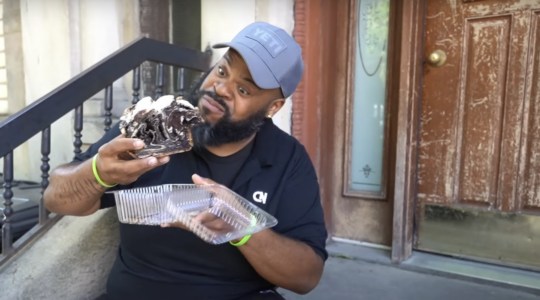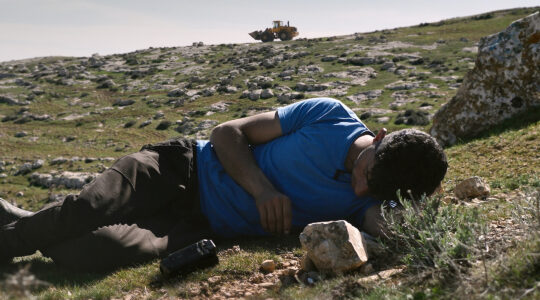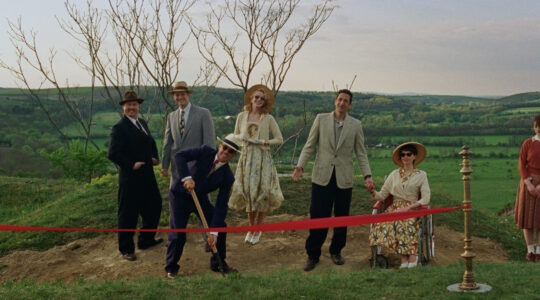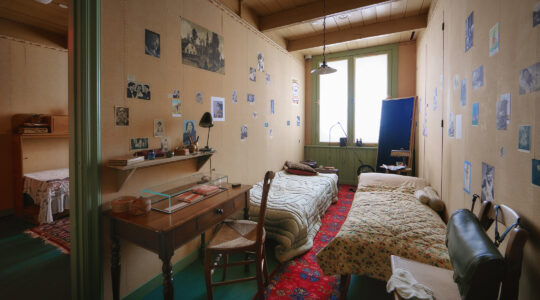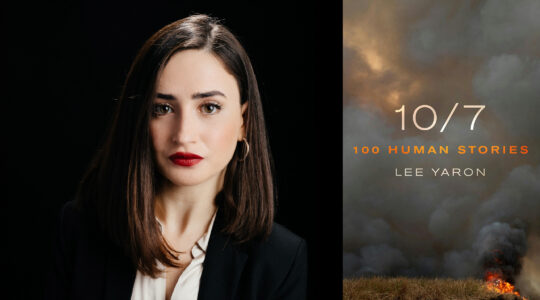Abraham Cahan, the founding editor of the Jewish Daily Forward, would have been 150 on July 7.
A few weeks ago, the Forward put together a special section to mark the occasion, including a piece by Editor Jane Eisner, titled "What would Ab. Do?":
… If I could conjure up a conversation with Cahan, perhaps over a glass tea at the Garden Restaurant around the corner from the legendary Forward Building on East Broadway (now upscale co-op apartments), I’d ask him about this — how, in a highly segmented media environment, we could possibly re-create a 21st-century version of the broad reach of his newspaper.
I suspect that one key was his intimate knowledge of, and appreciation for, his readers. He lifted them up without talking them down. He explained baseball and thermometers to greenhorns trying desperately to fit into America. He taught them how to use a handkerchief, wear a hat, make canned peaches, employ proper manners on the street. “Their dire lives were marked by struggle and frequently by self-doubt and concerns that their families and neighbors saw them as failures,” historian Lawrence Epstein wrote of Cahan’s readers. “The Forward gave them pride in themselves. They were, in its pages, struggling as a community. Theirs was not a lonely crowd.”
This deep connection was also forged by the financial underpinnings of the newspaper. The Forward, then and now, was published by the Forward Association, and though dependent on advertising and circulation for revenue, the newspaper has never sought to draw individual or corporate profit from its work. When it needed funds, the labor movement contributed; when it was flush with money, it returned the favor.
Now, as bankrupt newspapers flirt with various models of not-for-profit journalism, it’s almost quaint to point out what Cahan knew all along: that a newspaper is a public trust. How to nurture that trust in this fractured and unforgiving economic environment is another question I wish I could ask our founder.
What did Ab. do? Tell the American Jewish story better than anyone else, with independence, verve, commitment, creativity and empathy, helping generations of immigrants become Americans. Our story today is how the descendants of those Americans define themselves as Jews. Though the narrative has shifted, the mission remains as essential as ever.
Over at Tablet, the founding editor of the English-language Forward, Seth Lipsky, gives us an "imagined interview" with the late Cahan, and essentially answers the question in Eisner’s headline: What would Abraham Cahan do? He’d be … Orthodox!?
Was it hard to return to Orthodox Judaism after all those years in which you called yourself a “freethinker”?
Well, don’t forget I was educated Jewishly, thank God, and I’ve never had trouble admitting I was wrong. Thank God for that, too, and that may be because I made so many mistakes. Thank God for all of them. …
Levinsky. David Levinsky. He was a fictional character, of course, my own creation. But it’s no coincidence that at the start of the novel and the end of it, Levinsky notes that all his worldly success meant nothing to him and he was still, in his innermost being, the same Yeshiva boy who had swayed over his prayers. I wrote that at the peak of my career, and it was the most important thing I ever wrote, and it just came out of me. And I began rethinking my whole life at that time.
Not sure which of Lipsky’s theories is more upsetting to Forward old timers — his previous assertions about Cahan being a neocon forerunner or this portrait of Cahan as a frummy.
(The latter would be news to my wife’s very Orthodox, late great grandfather, who, I’ve been told, was so upset at the sight of a biography of Cahan sitting on the bookshelf in his adult son’s home, that he grabbed it and threw it out the window.)
JTA has documented Jewish history in real-time for over a century. Keep our journalism strong by joining us in supporting independent, award-winning reporting.
